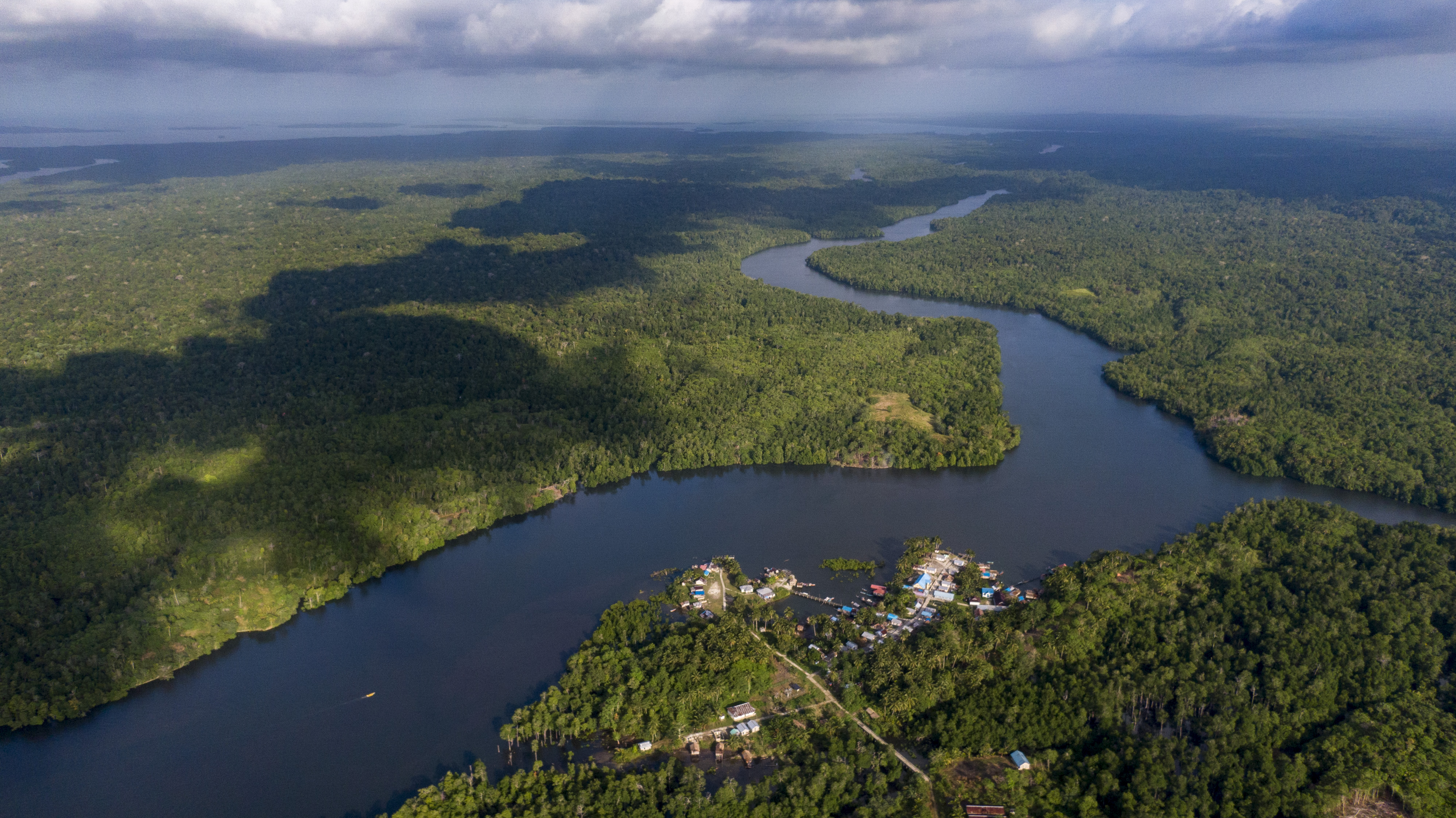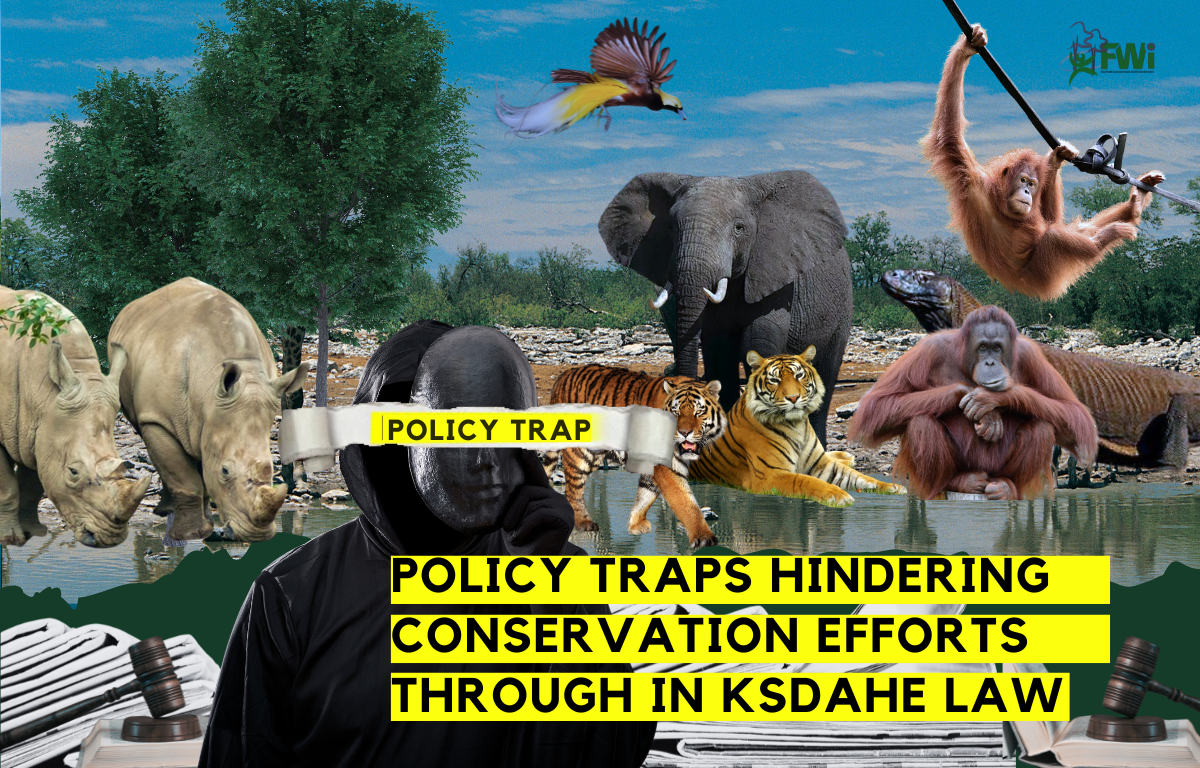
Jakarta, May 15, 2024 – To enhance the protection of natural resources and biodiversity, the Special Committee of Commission IV of the Indonesian House of Representatives (DPR RI) has held a series of meetings with the Government and the Regional Representative Council (DPD) RI to discuss the substance of the Bill on the Conservation of Natural Resources and Ecosystems (KSDAHE). During the process, several important points have been agreed upon to present a management formulation.
In the document received on March 19, 2024, the Civil Society Coalition Team highlights several key areas of concern, which are the Division of Authority, Wildlife Categorization, and Imposition of Sanctions.
In the agreement formulation document, the division of authority in the implementation of KSDAHE is carried out by the Central Government and Local Government by the mandate of Law Number 23 of 2014. There is concern that the implementation of KSDAHE on the field may fall into a policy trap.
Preservation areas are intended to better accommodate the protection of biological natural resources and the ecosystems outside the conservation area status. Previously, the term “Important Ecosystems Outside Conservation Areas” was used, with authority mandated to the Local Government.
The FWI data indicates that 90 percent of the damage to natural resources, in the form of natural forest ecosystems, occurs outside conservation areas, namely in forest areas designated for production, and protection, and in APL (Other Usage Area). Preservation areas should be understood as areas with enhanced protection status. The Civil Society Coalition believes that regulations governing the management of natural resources and their ecosystems outside of conservation areas should not be interpreted solely as a delegation of authority and responsibility for natural resource protection to Local Governments.
The bottleneck in addressing issues related to preservation areas in Production Forest (HP), Protected Forests (HL), and Other Usage Areas (APL) lies in the power and authority held by Local Governments. Where the current division of authority follows the rules in Law Number 23 of 2014 concerning Regional Governments. However, the current implementation is not sufficient to strengthen the role of local governments. For example, in regulating the performance compliance of forestry, mining, and plantation companies in managing forest resources within concessions.

FWI Campaigner, Anggi Putra Prayoga, believes that the discussion of the KSDAHE Bill in the Indonesian Parliament (DPR RI) still leaves several gaps that need to be improved. The DPR RI and the government have not yet determined important aspects of the preservation area, namely the mechanism and procedure for its establishment. The establishment of preservation areas is undoubtedly full of interest. Around 18.5% or 14.2 million hectares of important ecosystems outside conservation areas (including peatlands, mangroves, karst, high conservation value areas, biodiversity parks, and wildlife corridors) are located within company concessions (PBPH-HA, PBPH-HT, Plantations, and Mining).
Muhamad Satria Putra from Garda Animalia highlights a decline in law enforcement efforts in the Draft Agreement of the KSDAHE Bill as of March 19, 2024. Conservation of species of Plants and Animals still uses the nomenclature of protected and unprotected species. However, not all Plants and Animals have the same valuation and have different levels of extinction threats. This is because, in the draft of the KSDAHE Bill initiated by the Indonesian Parliament on July 7, 2022, there were proposals regarding the regulation for the conservation of Plants and Animals species to using a categorization system based on the protection status levels or as applicable in international agreement.
The Civil Society Coalition assesses that using categorization based on the level of protection status makes it easier for law enforcement officials to achieve the goal of fair punishment.
Furthermore, regarding the imposition of sanctions in the criminal provisions section, the criminal penalties for individuals of the Indonesian Parliament (DPR RI) must adhere strictly to cumulative sanctions with minimum criminal provisions. Furthermore, regarding the imposition of sanctions in the criminal provisions section, the criminal penalties for individual members of the Indonesian Parliament (DPR RI) must adhere strictly to cumulative sanctions with minimum criminal provisions, so their existence is not only to achieve the goals of punishment but also to provide a deterrent effect for the perpetrators.
Editor Notes:
Significant Changes in the KSDAHE Bill Document as of March 19, 2024
- Emphasis on Shared Responsibility for Conservation: KSDAHE becomes a shared responsibility and obligation of the Central Government, Regional Governments (Provinces and Regencies/Cities), and communities.
- Nomenclature Change: Important ecosystems outside conservation areas are renamed as Preservation Areas, with enhanced regulations.
- Division of Authority: Management of KSDAHE is divided based on the type of area:
- Natural Sanctuary Areas (KSA) and Nature Conservation Areas (KPA) fall under the authority of the Ministry of Environment and Forestry.
- Conservation of marine areas, coastal areas, and small islands falls under the authority of the Ministry of Maritime Affairs and Fisheries.
- Preservation areas fall under the authority of Local Governments (by Law Number 23 of 2014).
- Regulation of Plant and Animal Conservation:
- Conservation actions for specific plants and wildlife in marine habitats follow marine and fisheries regulations.
- Other conservation activities follow the regulations of the KSDAHE.
- Strengthening of Law Enforcement:
- Refinement of prohibition articles and the imposition of criminal sanctions.
- Empowerment of the authority of Civil Servant Investigators (PPNS) for KSDAHE
- Intensification of criminal sanctions, including additional penalties such as ecosystem restoration costs, wildlife rehabilitation, and compensation payments.
- Editorial and Substantive Adjustments:
- Replacement of the definition of “Genetic” with “Genetic Resources” and addition of the definition of “Genetic Diversity”
- Addition of 2 sentences to Article 9 regarding the management of Preservation Areas.
- Modification of the phrase in Article 18 regarding the mechanism for international status recognition.
- Addition of 3 sentences to Article 34 regarding Water Utilization.
- Changes to the provisions in Chapter IX regarding community participation.
- Changes to Article 39 and the addition of Articles 39A and 39B regarding PPNS.
- Changes to Article 40 and the addition of Articles 40A and 40B regarding criminal provisions.
- Important Notes::
- There are two alternative arrangements for imposing criminal sanctions: Cumulative sanctions (and/or) without minimum criminal provisions, while still adjusting to the categorization of sanctions in the Indonesian Law Book of Penal Code (KUHP).
- Imprisonment or fine penalties, by the categorization of sanctions in the KUHP.
- Meeting notes of the TIMUS (Formulation Team of the KSDAHE Bill) on November 27, 2023: It is necessary to include regulation regarding the utilization of water for basic daily needs by the community without the need for a business permit.
Contact Person:
Media FWI (+62 857-2034-6154)




